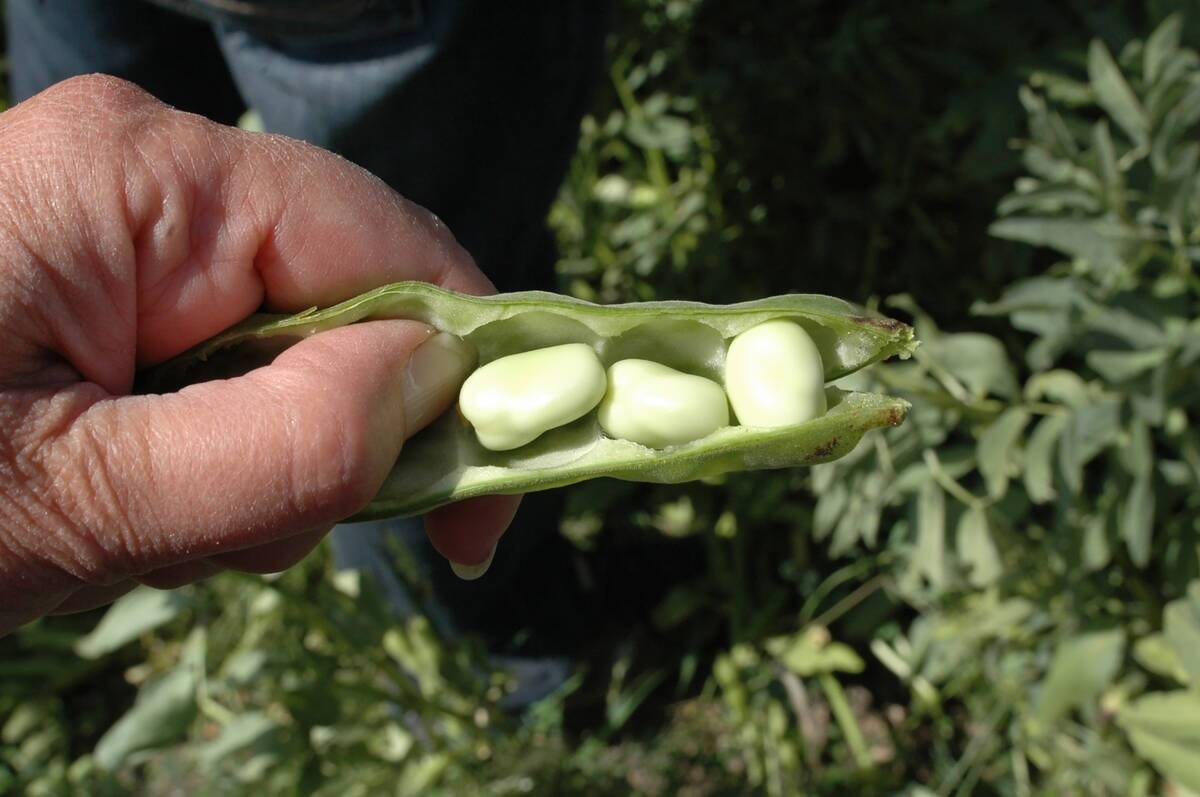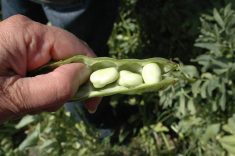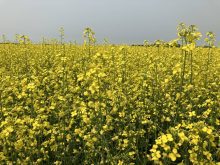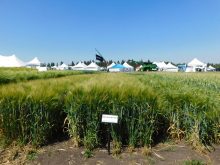Ergot Seed-cleaning co-op sees the investment as a way of getting ahead of a growing ergot problem
Producers west of Grande Prairie are putting more dollars in their pockets with the opening of a new colour sorter at the Wembley Co-op Seed Cleaning Association.
The new sorter has been in operation for both pedigreed and common seed cleaning since the middle of January. Operators say that last month alone the plant ran 40,000 bushels it wouldn’t have been able to clean before.
The colour sorter is one of only two in northwestern Alberta. The other is in High Prairie, and another is currently being installed in Rycroft.
Read Also

New crop insurer policy enables easier startup for faba beans
Agriculture Financial Services Corporation updated its normals for faba beans, which may open the door for more Canadian producers to feel comfortable growing the pulse crop in the future.
The Wembley project also included a new bucket elevator, two additional rooms for the sorter and an air compressor, two 4,000-bushel clean seed storage bins and 2,300-bushel screenings bin.
Most of the funds came from the co-op and the County of Grande Prairie, which committed to $100,000 over two years. Board chair Doug Lacoursiere said the $350,000 project was a bit ambitious for this 100-member seed co-op, and the board was hesitant in the beginning. However, it has surpassed everyone’s expectations, he said.
“We do a lot of certified and pedigreed seed here and the sorter is really going to help with that,” said Lacoursiere. “Producers using the sorter are getting much less of a cut on their grain.”
In cereals, a colour sorter can remove ergot, foreign material (i.e. wild oats), discoloured seeds and immature and diseased kernels as well as sticks, hulls and stones. It removes colour defects (caused by disease, immaturity or moisture damage), splits, and undecorticated seed in pulse crops such as lentils, beans and peas.
The seed doesn’t have to be cleaned as aggressively as it did with the old equipment, said Lacoursiere. He expects the sorter will bring in additional customers to the plant.
“Some seed that was seeing 10-15 per cent screenings is now at seven to 10 per cent with the sorter,” said Lacoursiere, adding that some of the grain processed over the last month wouldn’t have made the grade for common seed and some wouldn’t have even been salable.
“One customer made $80,000 they wouldn’t have without the use of the sorter,” Lacoursiere said.
The plant charges 10 cents a bushel to use the sorter.
“That’s about the cheapest and best thing a guy can do per acre this year,” said Lacoursiere. And the better the seed quality, the less need for spraying two or three years down the road, he added.
The co-op sees the sorter as a way of getting ahead of a growing ergot problem.
“When we asked the County of Grande Prairie for some dollars in support of the project, our contention was that the sorter would enhance seed quality and help us get ahead of the ball when it comes to ergot problems down the road,” said Lacoursiere.
Ergot is difficult to clean from wheat because the most common cleaning equipment separates foreign material, like ergot, by size and shape. Most ergot bodies are similar in size and shape as wheat kernels.
“You wouldn’t be able to do anything with (ergot-) affected grain,” Lacoursiere said. “Shipping it out as a feed grade or to the closest sorter in High Prairie, either way the producer is taking a big cut.”














